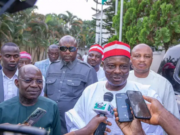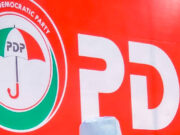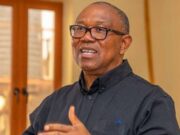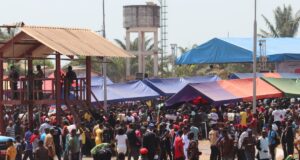Russian President Vladimir Putin has expressed his readiness to meet US President-elect Donald Trump “anytime” to discuss a potential peace deal for Ukraine.
Trump, who is set to return to the White House in January, has previously suggested he could negotiate a peace agreement swiftly after taking office, which has raised concerns in Kyiv about a possible deal that may favor Moscow.
During his annual end-of-year press conference on Thursday, Putin stated that while Russian forces were making progress on the battlefield, he was uncertain about the timeline for retaking the western Kursk region, where Ukrainian forces launched an incursion in August.
Addressing the possibility of talks with Trump, Putin said he had not spoken to the incoming president for over four years but was open to a meeting.
“I am ready for it, of course. Any time,” he said, adding that if a meeting did take place, there would be much to discuss, and Russia was open to “negotiations and compromises.”
The Kremlin had recently praised Trump’s criticism of President Joe Biden’s decision to allow Ukraine to use US-supplied missiles to strike Russian territory, which marked a significant escalation in the ongoing conflict.
Despite the ongoing military offensive in eastern Ukraine, Putin highlighted the growing capabilities of Russia’s armed forces and their continued progress toward achieving the objectives of the “special military operation.”
However, when asked by a resident of Kursk about the return of evacuees to their homes after the Ukrainian assault, Putin could not provide a specific timeline but promised that Russian forces would eventually expel Ukrainian troops from the area.
Putin, 72, also addressed Russia’s economic challenges, including the strain caused by increased military spending and labor shortages due to the ongoing conflict.
While he acknowledged concerns over inflation and rising food prices, he assured the public that the economy remained stable, citing low unemployment and industrial growth.
He also criticized Russia’s central bank, suggesting it should have taken stronger actions beyond raising interest rates to combat inflation.
In response to a journalist’s question about Russia’s new hypersonic missile, the Oreshnik, Putin hinted at a potential strike on Kyiv to demonstrate the weapon’s effectiveness against air defenses, suggesting a “hi-tech duel” with the West.
Putin also addressed the recent assassination of Igor Kirillov, a senior Russian army general, calling it an act of terrorism.
Kirillov, who led Russia’s chemical weapons unit, was killed in Moscow by a bomb planted in a scooter, an attack claimed by Ukraine.
Finally, in response to questions about the situation in Syria, Putin rejected the notion that the fall of former Syrian President Bashar al-Assad represented a defeat for Russia.
He emphasized that Russia had achieved its goals in Syria and reaffirmed plans to meet with Assad in the near future.

















